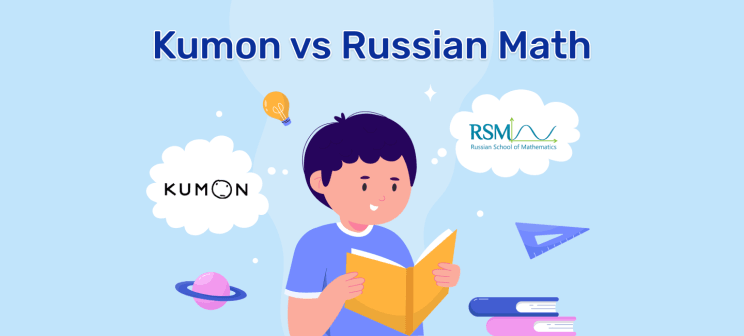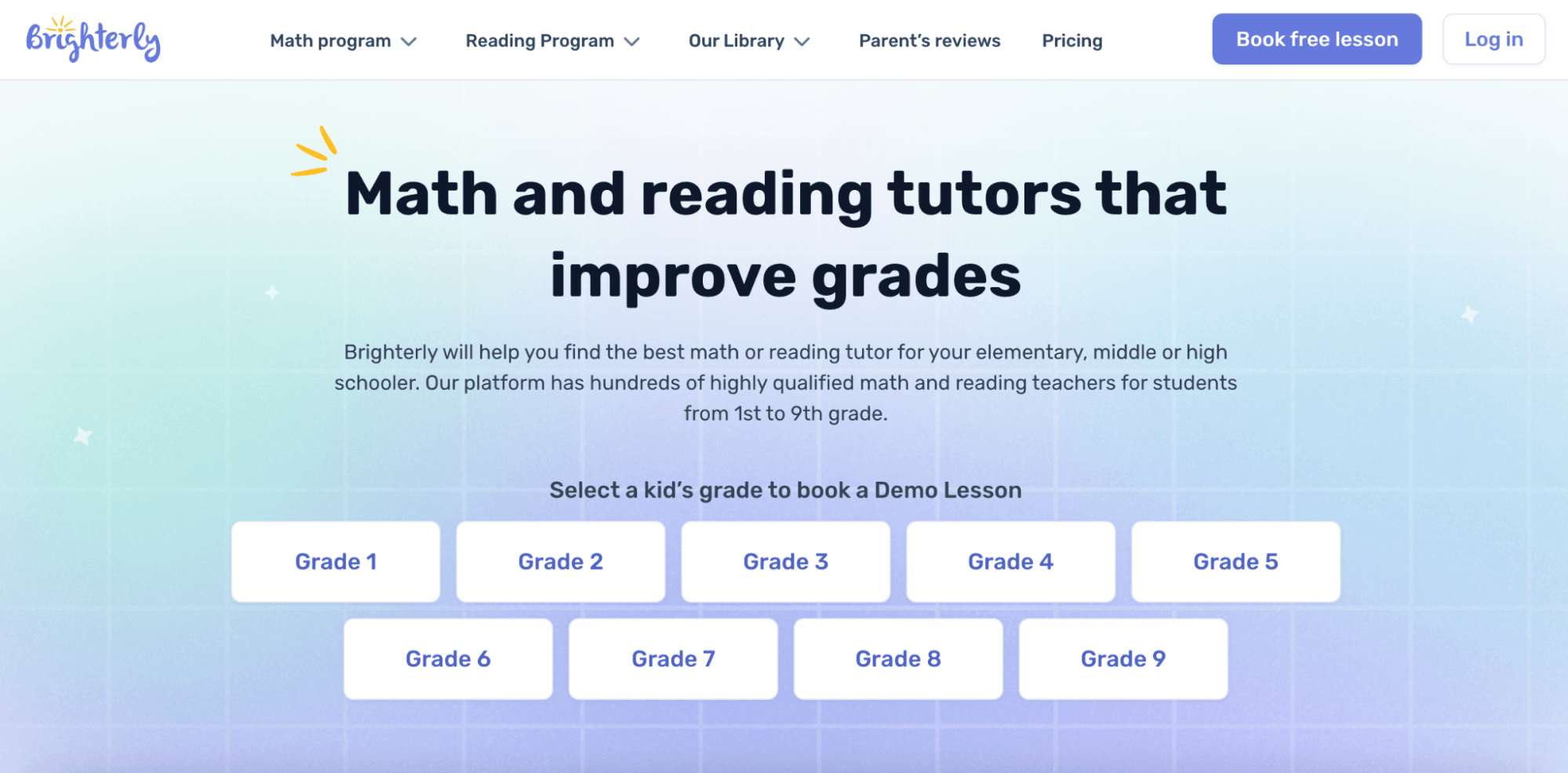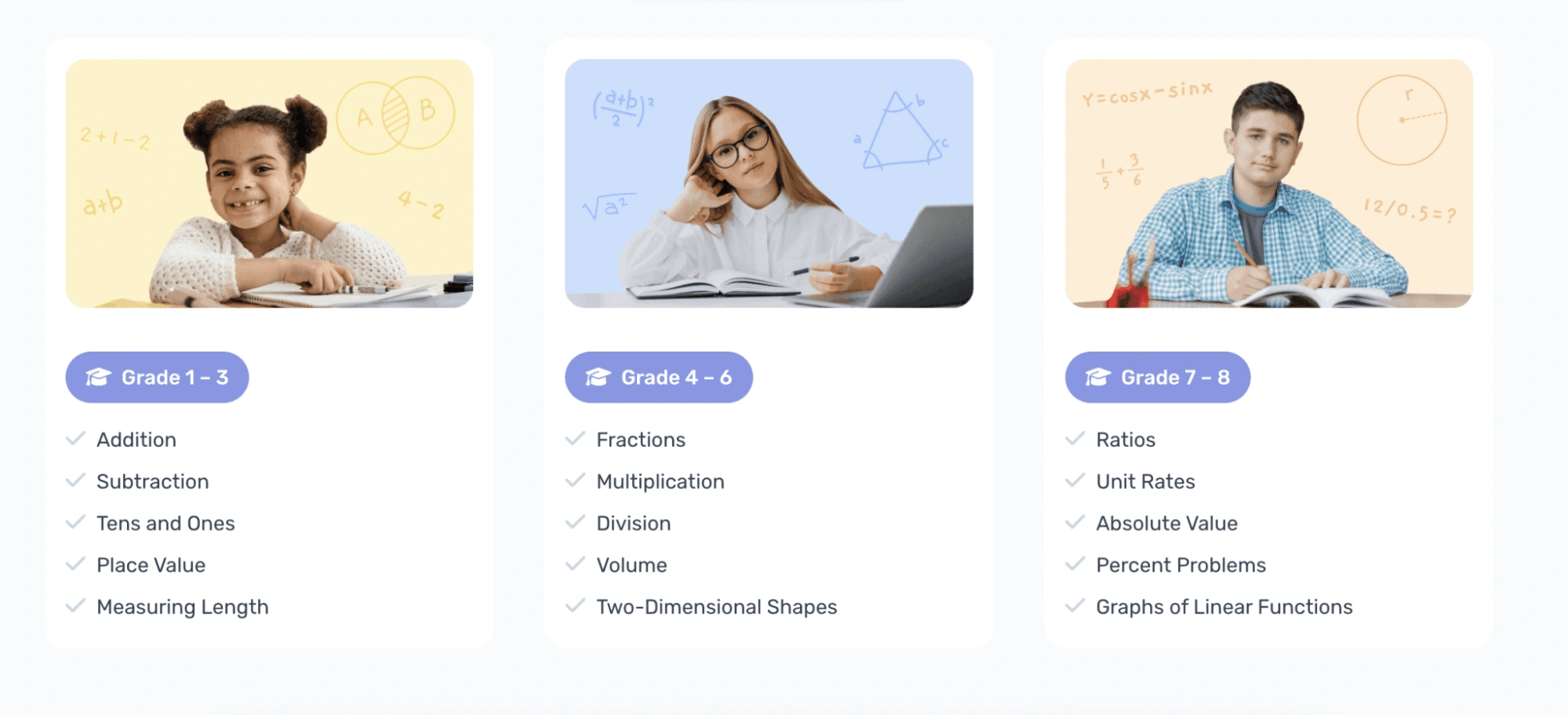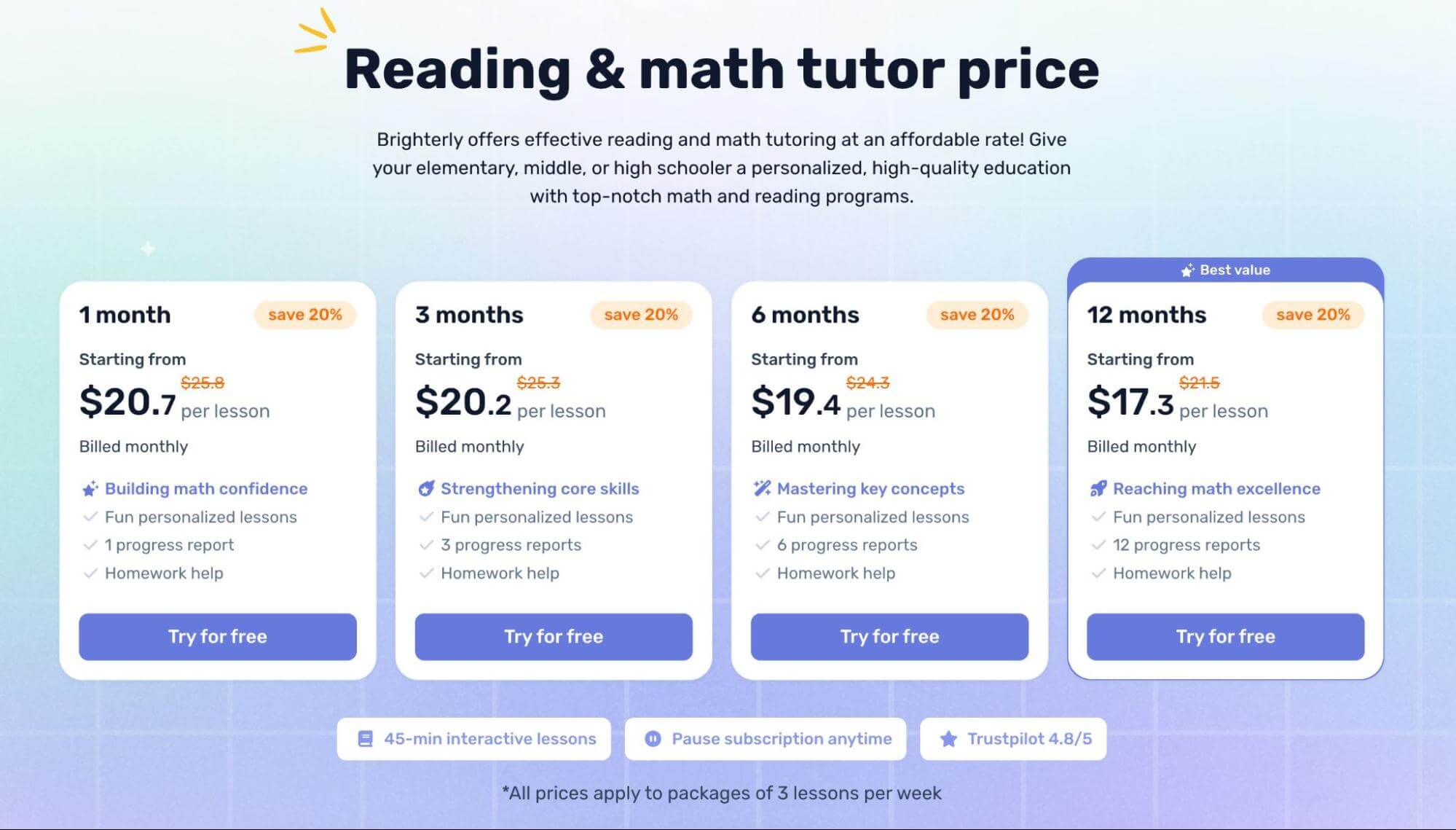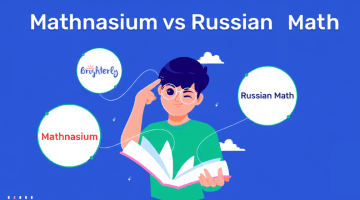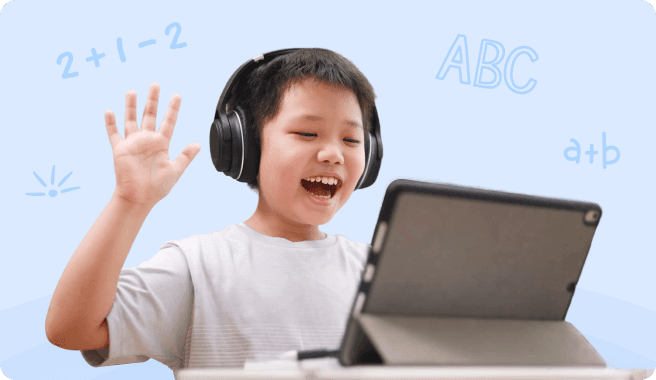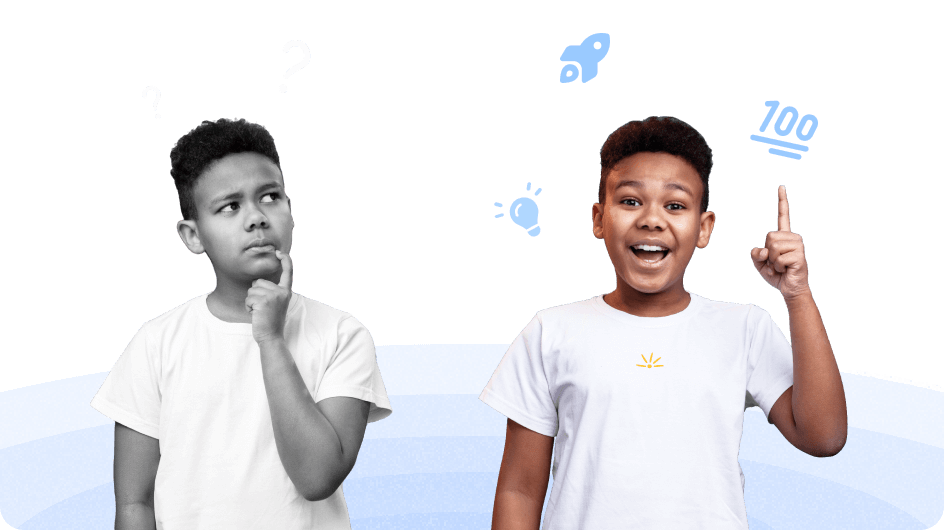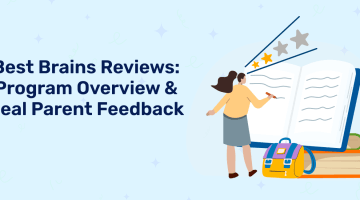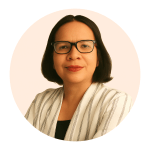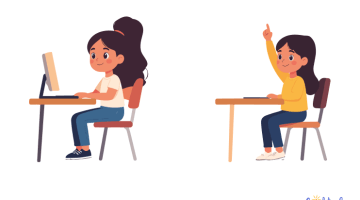Russian Math vs Kumon vs Brighterly: Which One Is Better in 2026?
reviewed by Jo-ann Caballes
Updated on December 25, 2025
Choosing between Russian Math vs Kumon vs Brighterly can be overwhelming. Those are some of the greatest math programs in the United States, each with its differences. Today, I’ll compare them to help you find out which will be the best for your child.
Summary
- Russian Math: A rigorous, theory-heavy program for ambitious, self-disciplined students.
- Kumon: A self-paced, repetitive worksheet-based practice for independent learning.
- Brighterly: Interactive, one-on-one lessons tailored to each child’s needs.
Exploring alternatives?
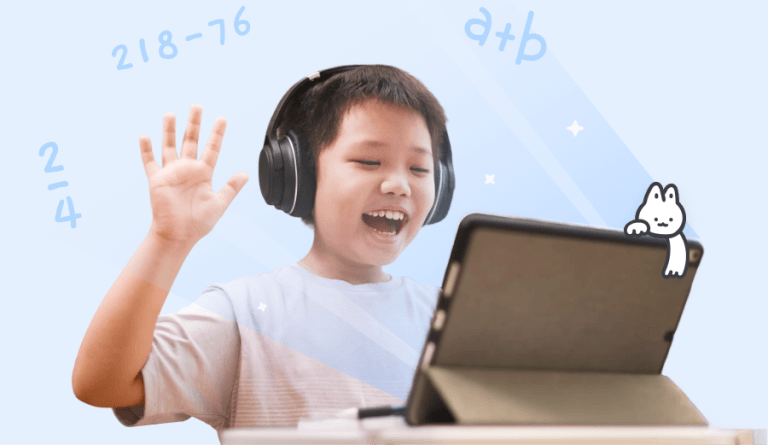
Kumon vs Russian Math vs Brighterly: Comparison
Programs |
Brighterly |
Russian School of Math |
Kumon |
| Teaching Approach | One-on-one, interactive online tutoring | Offline and online classes with a logic-based curriculum | Self-paced, worksheet-based learning |
| Subjects learned | Math, reading, ELA | Math, reading | Math |
| Focus | Personalized learning, aligned with US state standards | Advanced problem-solving and reasoning skills | Repetition and mastery through practice |
| Lesson Format | Engaging sessions with tutors | Small group classes with structured lessons | Independent work with minimal guidance |
| Best For | Students who need engaging, tailored support | Students who thrive in a structured, rigorous environment | Students who benefit from repetition and self-discipline |
| Cost | Starts at $19.50 per lesson | Depends on location, but starts from $168 per month | Depends on location, but starts from $165 per month |
| Flexibility | High – lessons adapt to the student’s needs | Moderate to low – follows a structured curriculum | Moderate to high – self-paced but requires consistency |
| Parental Involvement | Low – tutors handle teaching | High – parents often assist with practice |
High – parents must oversee daily worksheets |
Russian Math vs Kumon vs Brighterly cost: Comparing options
| Pricing | Free offerings | |
Brighterly cost |
Starts from $17.3 per 45-minute lesson | Demo lesson Diagnostic tests Library of worksheets |
Kumon cost |
Starts from $17.5-$25 per 30-minute lesson (exact price depends on the center location) | Demo lesson Free diagnostic test Samples of worksheets |
Russian School of Math cost |
Starts from $39-124 per 90-240-minute lesson (exact price depends on center location, and the exact lesson length depends on the kid’s level) | Free 30-minute evaluation |
What is the difference between Kumon vs Russian Math vs Brighterly?
The critical distinction between Kumon vs Russian Math vs Brighterly lies in their approaches:
- The Kumon platform is more focused on independent learning with minimal tutor help.
- Russian Math offers a rigorous curriculum in group offline and online courses with up to 12 students in a class.
- Brighterly provides personalized, interactive online lessons tailored to each child’s learning style, making math fun.
What is Brighterly?
Brighterly is a K-12 school-supplemental platform that specializes in math and reading tutoring for kids of different proficiency levels. Thanks to their individualized approach and focus on 1:1 assistance, Brighterly reading and math tutors manage to provide highly customized teaching services aligned with the US state standards.
Best for: learners who want 1:1 tutoring sessions with professionals
Another remarkable strength of Brighterly among the Russian Math vs Kumon vs Brighterly pros and cons is its focus on interactivity. Lessons are private and engaging, meaning your child gets the tutor’s full attention, personalized support, and dedication to make studying enjoyable.
Why Brighterly is better for math online tutoring
- Gentle yet productive tutors
- Personalized STEM curriculum aligned with the US state standards
- Free additional resources
Gentle yet productive tutors
Tutors on the Brighterly reading and math tutoring platform are professionals who work with K9 students to boost their math and reading skills. Elementary tutors make learning easy by helping the youngest students master new skills with fun, practical tasks. For middle schoolers, tutors focus on building confidence and closing knowledge gaps.
Brighterly reviews consistently praise the gentle yet highly effective approach that the platform uses. While comparing Kumon vs RSM vs Brighterly, it’s clear that Brighterly has the most customizable curriculum and gentle study approach among these three.
Personalized STEM curriculum aligned with US state standards
Brighterly math tutors are here for you to provide personalized lessons with expert tutors that are aligned with U.S. state standards. The STEM-based math program ensures students gain solid foundational skills while learning at their own pace.
Comparing programs Kumon vs Russian Math vs Brighterly, it’s notable that the latter has the most customizable math and reading program. While RM has group classes that cannot be perfectly tailored to the needs of each student, Kumon mostly relies on its worksheets and self-study.
Free additional resources
In competition between the Russian School of Math vs Kumon vs Brighterly, Brighterly offers the widest range of free resources to help 1st-9th grade students with their homework, including free math worksheets, reading worksheets and diagnostic tests. These resources are perfect for reinforcing what they’ve learned and giving them extra practice.
Check your child’s math and reading skills with Brighterly worksheets, as each has the answers at the end and you can see how they’re doing. Another way to quickly review your child’s current knowledge is to read them Knowledge Base articles and pass Brighterly’s free math and reading test at the end of the chosen article.
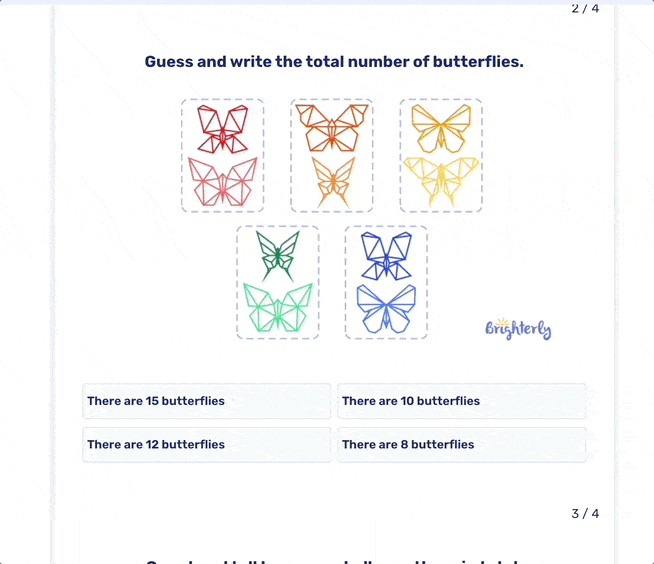
Note: To get an accurate understanding of a child’s strengths and weaknesses, complete the free diagnostic math test or reading test. It’s a simple way to see what areas need attention.
How much is Brighterly math?
- Learning Membership 1-month plan: From $20.7 per lesson.
- Learning Membership 3-month plan: From $20.2 per lesson.
- Learning Membership 6-month plan: From $19.4 per lesson.
- Learning Membership 12-month plan: From $17.3 per lesson.
*The Brighterly cost varies as the cost above is considered for 3 classes/week.
Why do parents prefer Brighterly over Russian Math or Kumon?
Between Russian Math or Kumon or Brighterly, the latter has a fully custom approach that adjusts to a child’s needs. It suits both kids who struggle with math and those who want to study material ahead of their schedule.
Russian School also has a great approach. But in most cases, kids study in groups, which may not fit some students’ needs.
Meanwhile, Kumon is mostly focused on worksheets, leaving not that much room for improvisation.
What is Kumon?
Kumon is a structured after-school tutoring program for students that aims at building strong math skills, including calculation and problem-solving. If your child predominantly needs help in this area, and you’re hesitating between Kumon vs Russian School of Math, then Kumon might be a great option for developing basic skills.
Best for: target Kumon age range is middle schoolers who want to improve their math and reading skills through self-paced, structured learning
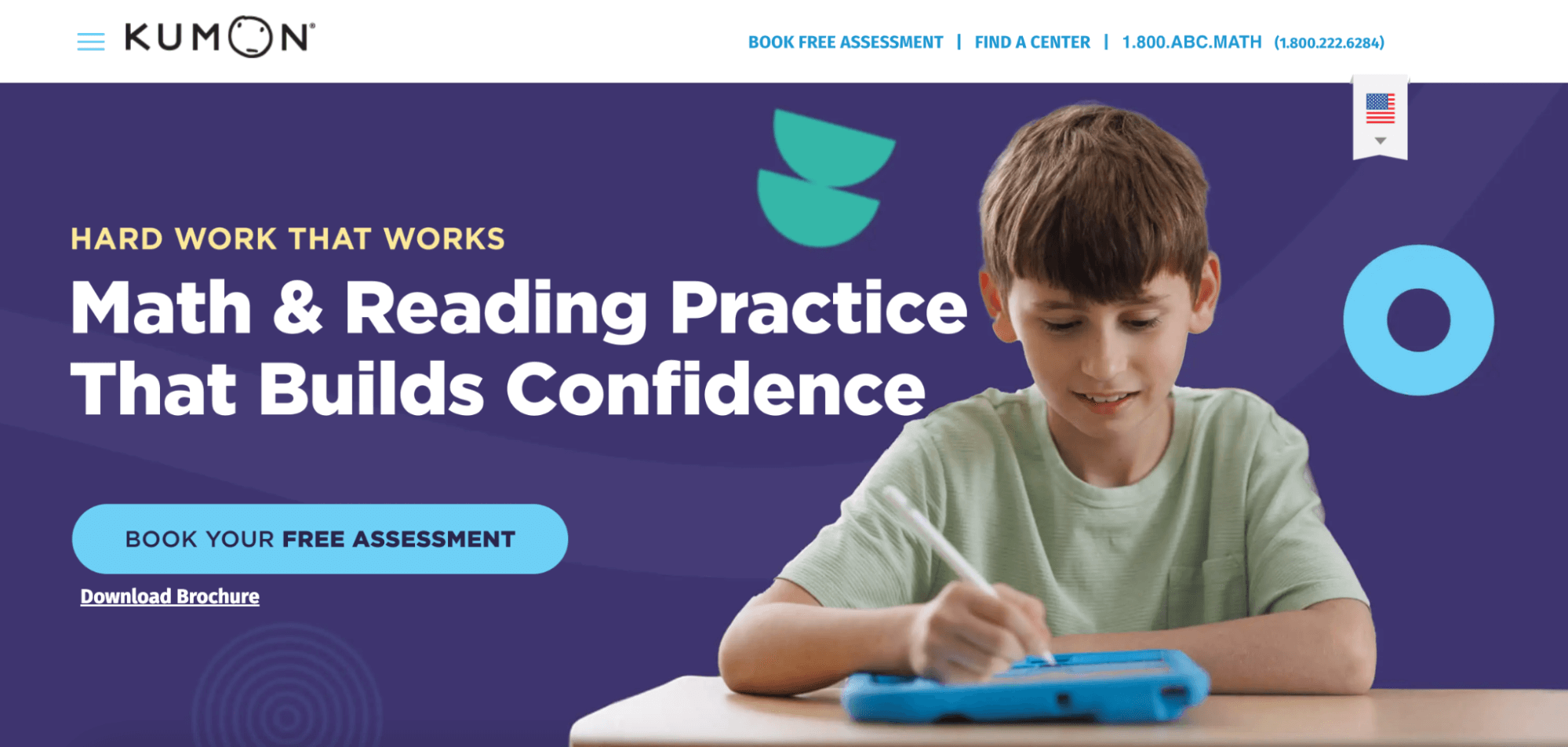
How does Kumon work?
Self-paced learning
Independent, disciplined learning is the main focus of the Kumon tutoring. Unlike traditional classrooms, where everyone follows the same schedule with the tutors’ help, Kumon focuses on individual studies that are tailored to the current student level.
Students begin at a level below their current grade to build confidence and ensure mastery of fundamental skills. As they progress, they only move forward when they demonstrate a complete understanding of a topic. This way, the self-paced method helps students develop self-discipline and independent problem-solving skills, which are essential for academic success.

Daily practice & worksheets
Based on the pros and сons of Kumon approach, your child is expected to practice math daily, even when there is no math tutoring scheduled. So, if you’re wondering if Kumon is worth it, consider it an investment in consistent, daily practice for your kid that will help them master math and reading skills.
Students complete short but focused worksheets each day, gradually increasing in difficulty. This repetitive yet structured approach reinforces key concepts, improves recall, and enhances problem-solving speed.
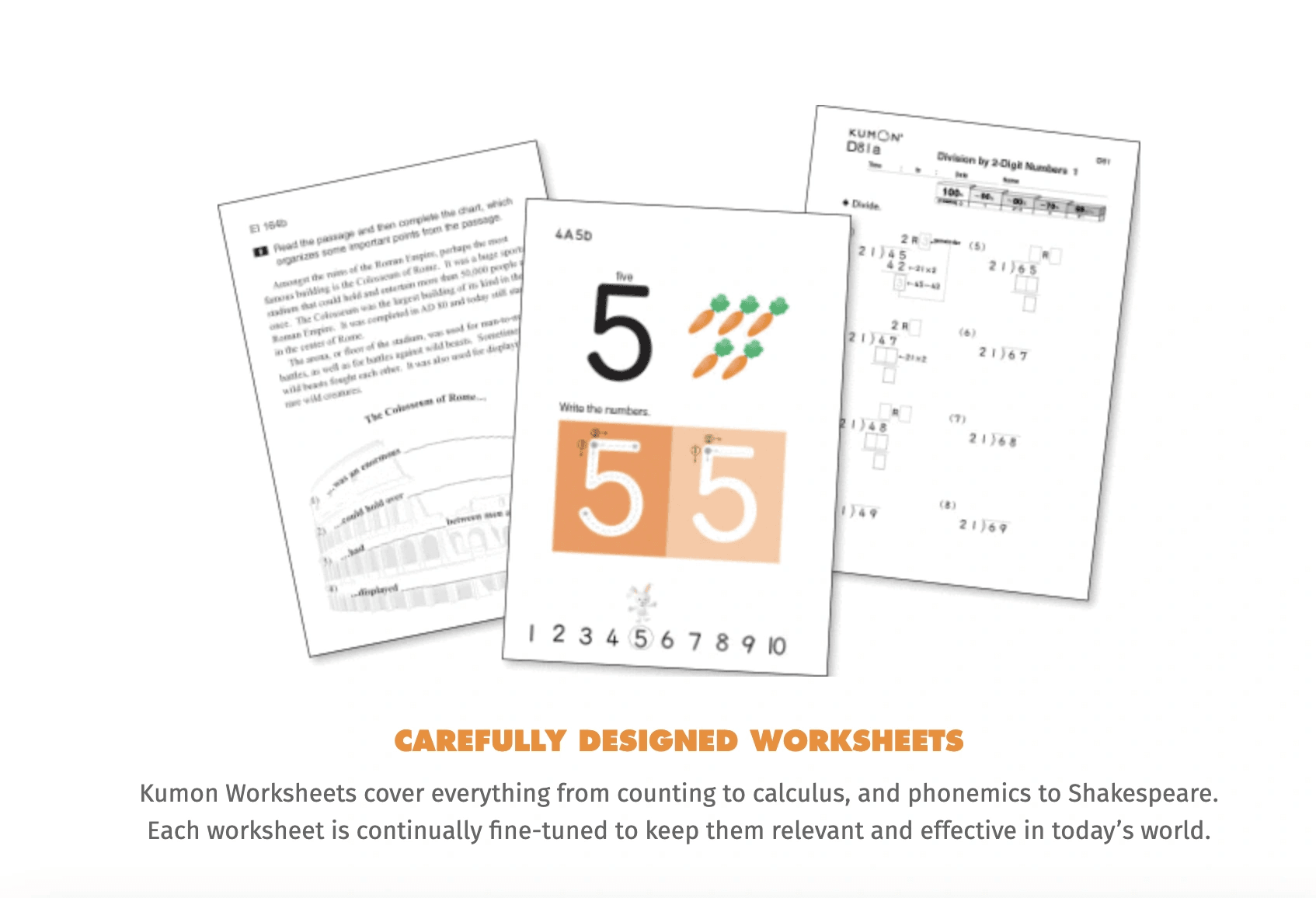
Tutors guidance
While the key answer to “What is Kumon classes?” is independent learning, their tutors help kids understand the logic behind math and reading. However, unlike traditional teachers who directly teach new concepts, Kumon instructors act as facilitators, guiding students to discover answers on their own.
They assess each student’s performance, identify areas that need reinforcement, and adjust their study plan accordingly. Instructors provide feedback and encouragement, helping students develop resilience and problem-solving abilities.

Kumon pros and cons
Is Kumon worth it? Merits of this service |
Why is Kumon bad? List of disadvantages |
| Strong conceptual understanding beyond plain memorization | A repetitive math program may seem unstimulating and boring for some students |
| Building a strong math and reading foundation | First tasks may look too simple for the current child’s grade |
| A personalized worksheet-based learning plan | Prices are set individually, making it hard to define how much Kumon cost |
| Offline learning that contributes to improving soft skills | Not all centers can offer remote learning |
| Daily assignments that let you build skills steadily | No immediate feedback to quickly self-correct |
How expensive is Kumon?
Kumon can get really expensive, as their tuition fees range from state to state. Every Kumon center is individually owned and operated, and you may end up paying more than the typical $160-$180 monthly fee range for their services.
Also, the additional fees like registration and learning materials can affect the final price of Kumon, especially for the first month of studying in Kumon.
What is Russian Math?
Russian Math, also known as the Russian School of Mathematics, is a math education method and system from the Soviet Union. It’s taught in specialized math-centered schools and some American schools now.
Russian Math is known for its challenging math problems that may push students to their limits to develop creative thinking for solving math. In addition, Russian Math homework can seem too demanding if kids aren’t used to doing much at home.
Best for: Russian Math School tuition is for students who are looking for a rigorous, structured approach to math that goes beyond standard school curricula.
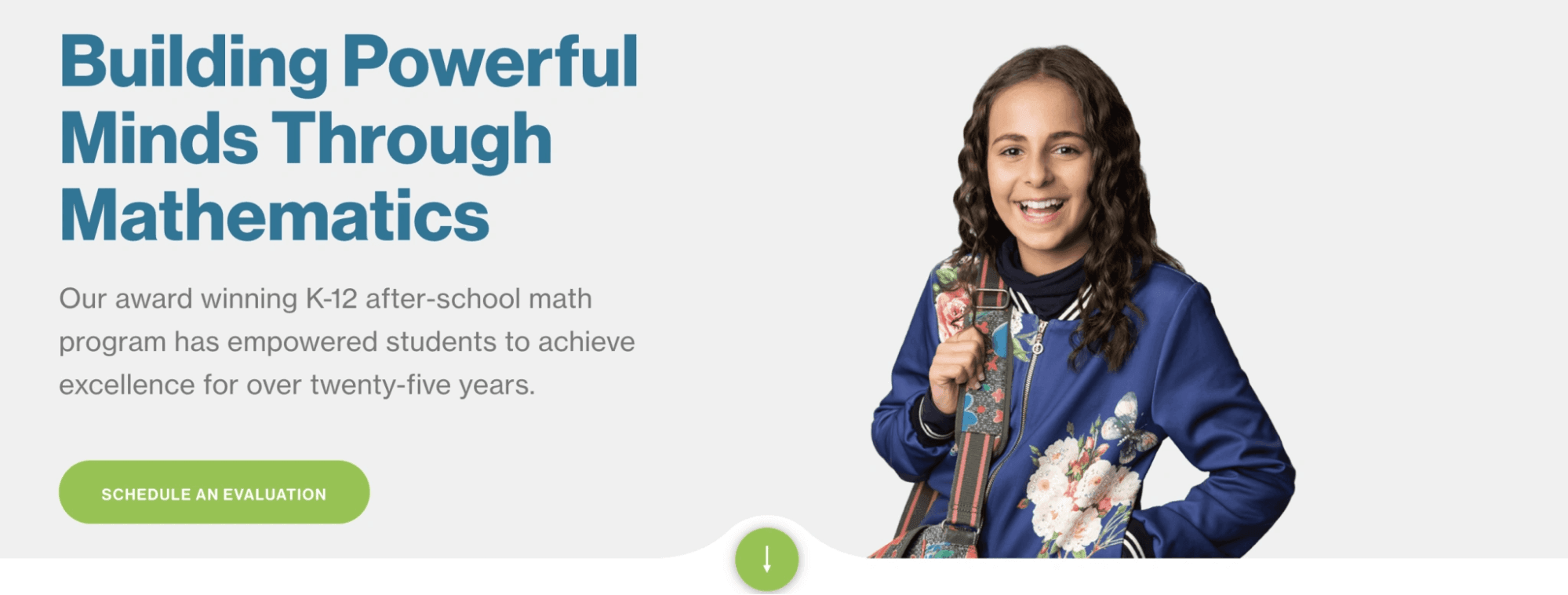
Russian Math School: Features
- Emphasis on logical thinking
- Rigorous curriculum & problem-solving approach
- Early introduction to advanced topics
Emphasis on logical thinking
The main justification of Russian Math vs Kumon fees is the RSM’s focus on logical reasoning. Here, students solve problems step by step, looking for the reasoning behind mathematical rules. Instead of simply applying formulas, kids learn different ways to solve the same problem. As a result, students gain a strong conceptual foundation.
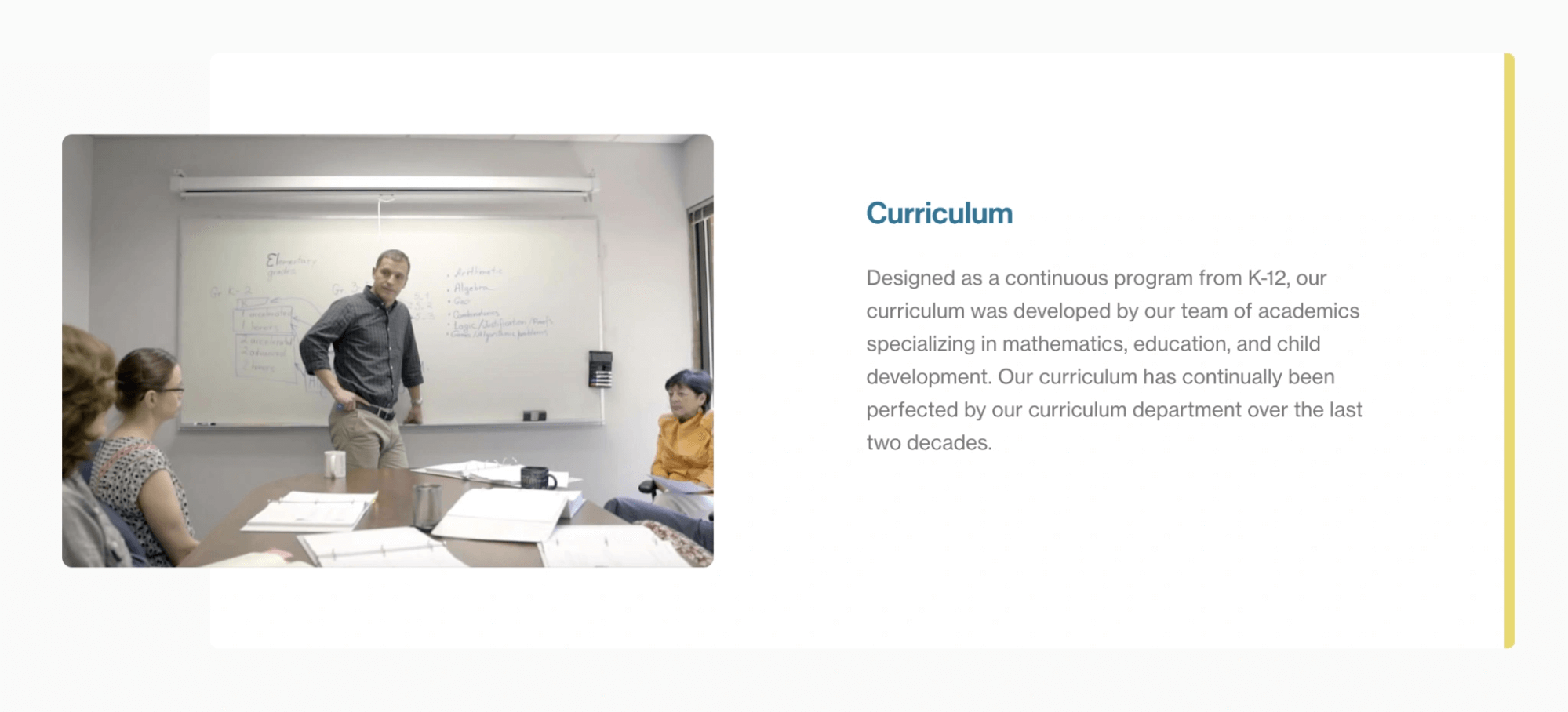
Rigorous curriculum & problem-solving approach
Between RSM vs Kumon vs Brighterly, Russian Math has the most rigorous and unalterable study plan. While Brighterly and Kumon’s curricula can be perfectly tailored to a child’s needs, exploring even the simplest topic for months ensures that students perfectly understand it.
RSM introduces new topics in a carefully designed sequence to a group of kids, and if your kid is a slow learner, they may ask the teacher to slow down, which may affect their confidence. Keep this in mind while making your decision.
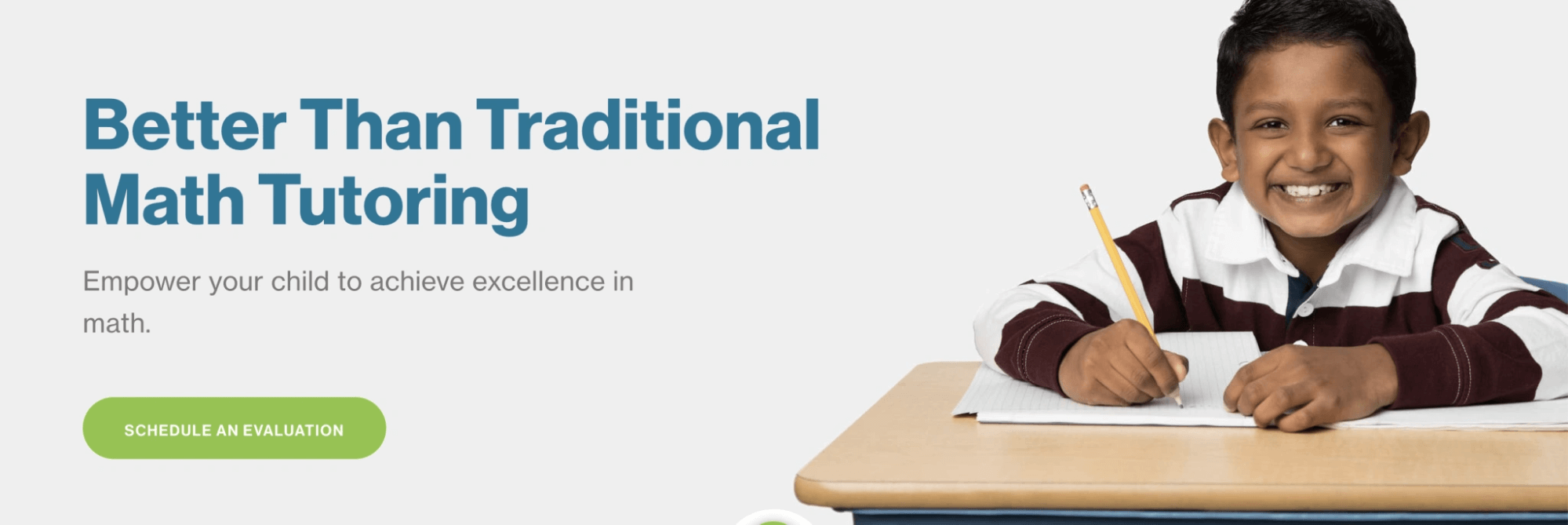
Early introduction to advanced topics
Unlike traditional math programs, the Russian Math school introduces complex topics at an earlier age. Students begin working with algebra, geometry, and number theory long before they typically appear in standard curricula.
The Russian School of Math curriculum gradually increases in complexity for students to be always engaged and challenged. Advanced topics are taught in a way that makes them accessible and intuitive, often using visual methods, storytelling, or real-life applications to illustrate abstract concepts.
Russian Math: Pros vs. cons
Is Russian Math worth it? Pros |
Russian School of Math: Disadvantages |
| High in-class pressure creates an ambitious environment | The actual RSM tuition cost depends on your location |
| Strong STEM foundation suitable for tech careers | May not be the best option for children who love gamified and supportive learning |
| Not the most flexible study approach |
How much does the Russian School of Math cost?
For Russian Math annual costs, expect to pay from $1,116 to $4,464, depending on the chosen subject and your kid’s grade. Russian Math cost per month can vary from $124 up to $494. The actual price depends on the location, the number of subjects, and the student’s grade.
Russian Math vs Kumon vs Brighterly Reddit & Trustpilot reviews
In this section, I’ve collected the most illustrative feedback on Russian Math, Kumon, and Brighterly. This way, you can have a more detailed image of each platform and see which exact benefits you can expect from them based on real-life evidence.
Brighterly reviews
Brighterly has a very high 4.4 satisfaction score on Trustpilot thanks to the great experience their tutors demonstrate. When checking the reviews, you can frequently see the names and lots of appreciation for their efforts from several parents.
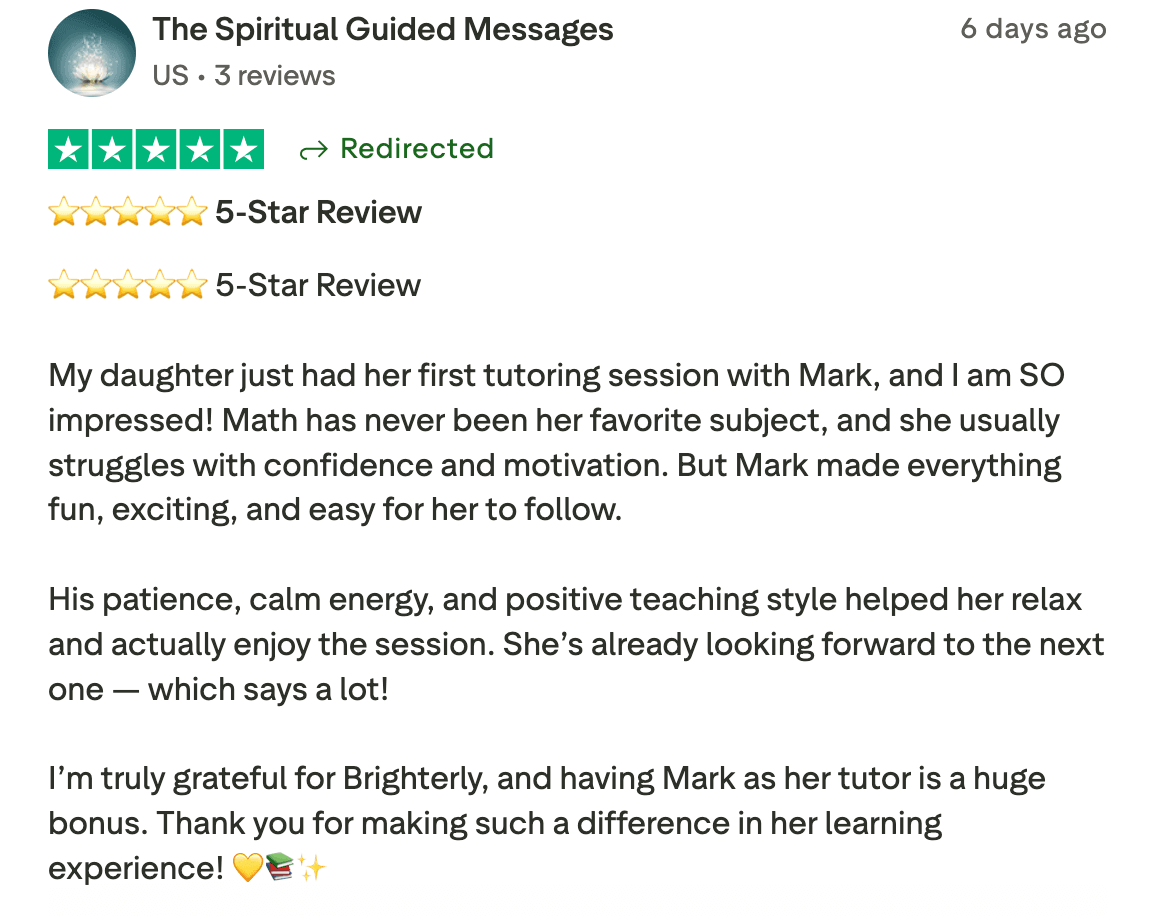
Some users also acknowledge the real value for money, which is a great Brighterly advantage compared to the Kumon tuition fee and the Russian Math price.
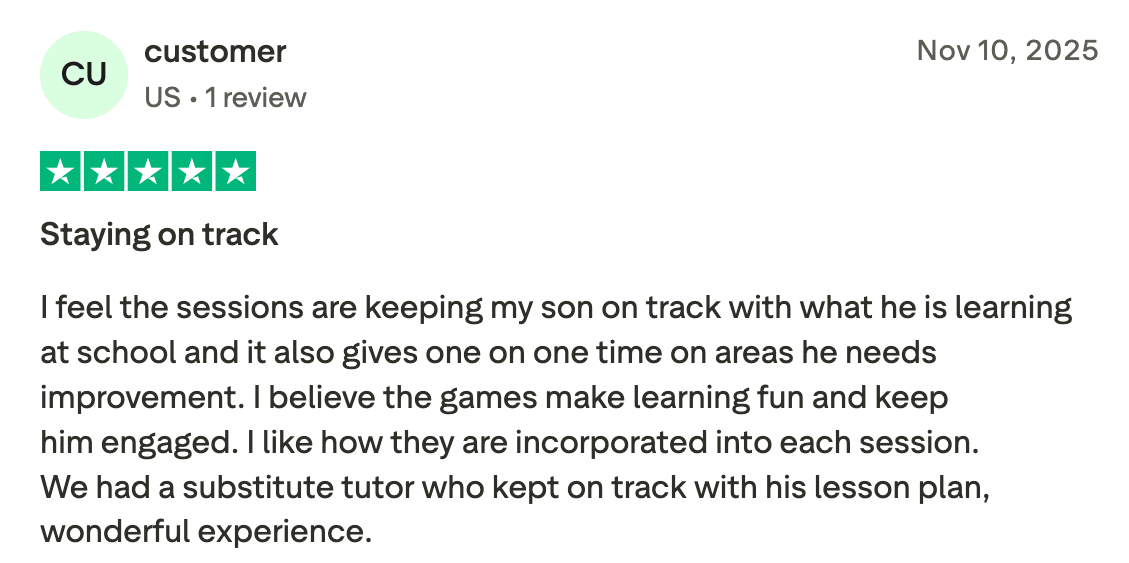
Even resolving a cancellation policy issue gets positive feedback from parents!
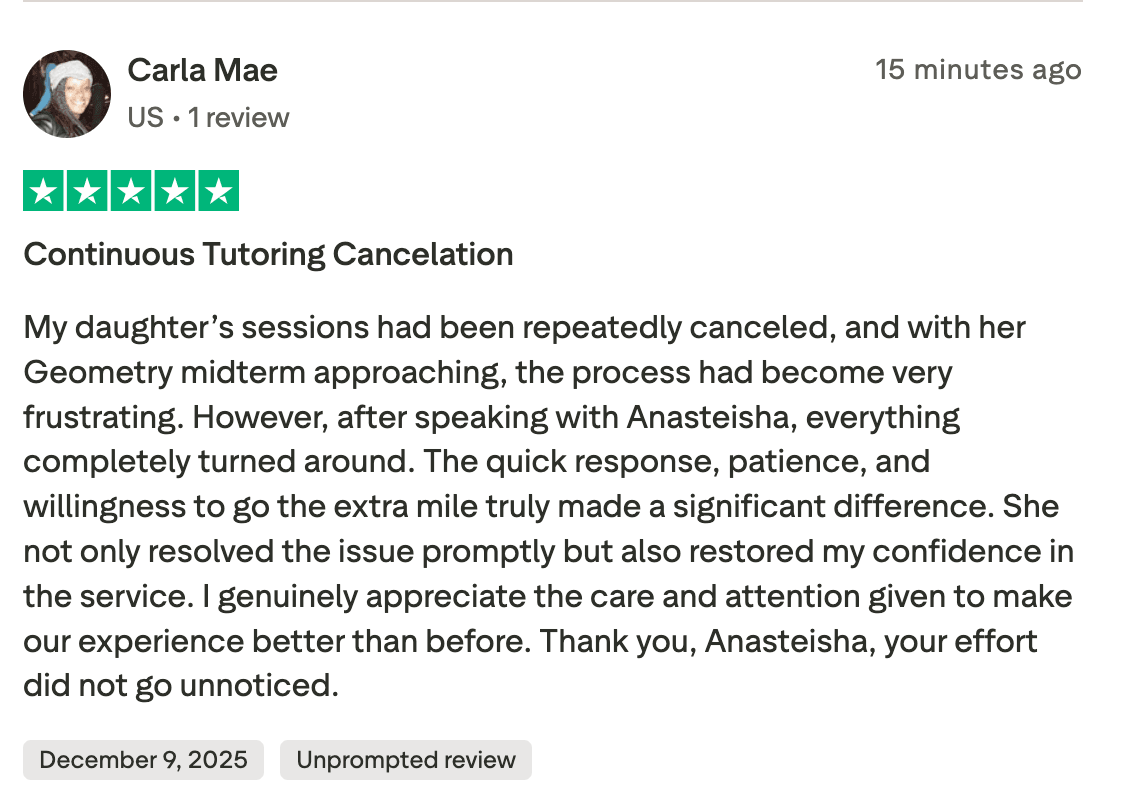
Kumon reviews
In both Trustpilot and Reddit Kumon reviews, you can encounter lots of criticism and dissatisfaction about the platform. But there are good moments, too. As for 2026, there are many positive reviews on Trustpilot stated that it’s “absolutely fantastic and a good experience for preparing to go to school.” While the only good-neutral review on Reddit reported benefits only for high schoolers:
In Reddit reviews that aim to compare Kumon to Russian Math for kindergarten children, parents mention that the Kumon method may be too rigid for youngsters, not following the specifics of their learning and pacing.

Overall, Trustpilot reviews reveal dissatisfaction with worksheet-based learning and the services they receive in individual Kumon centers.
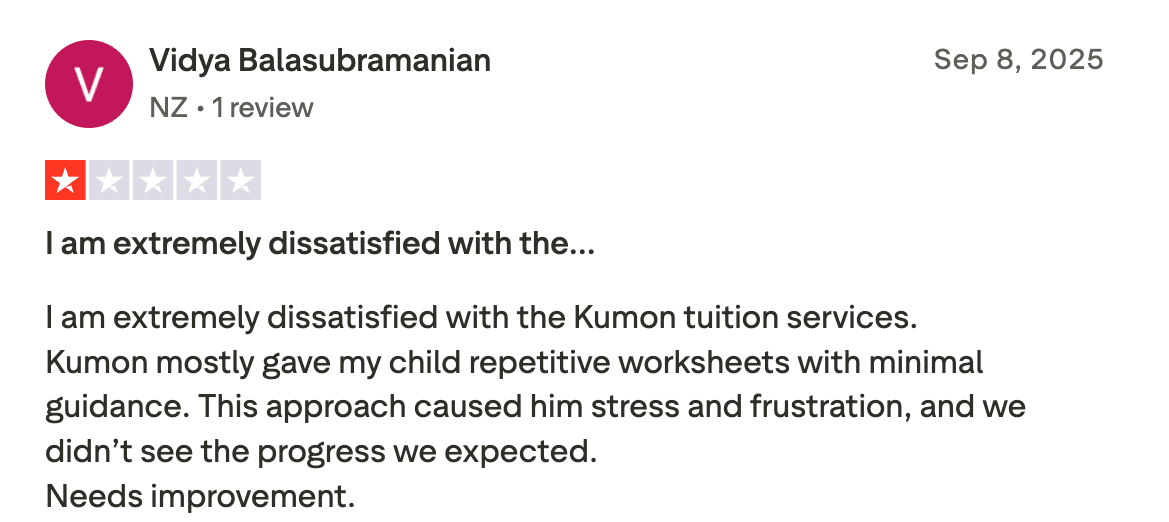
Russian School of Math reviews
Russian School of Math reviews are not present on Trustpilot — still, you can find many discussions of the platform on Reddit, as some parents doubt the need for the rigid training that RSM offers, while others acknowledge the need for their children to find like-minded peers and advance in math from an early age.
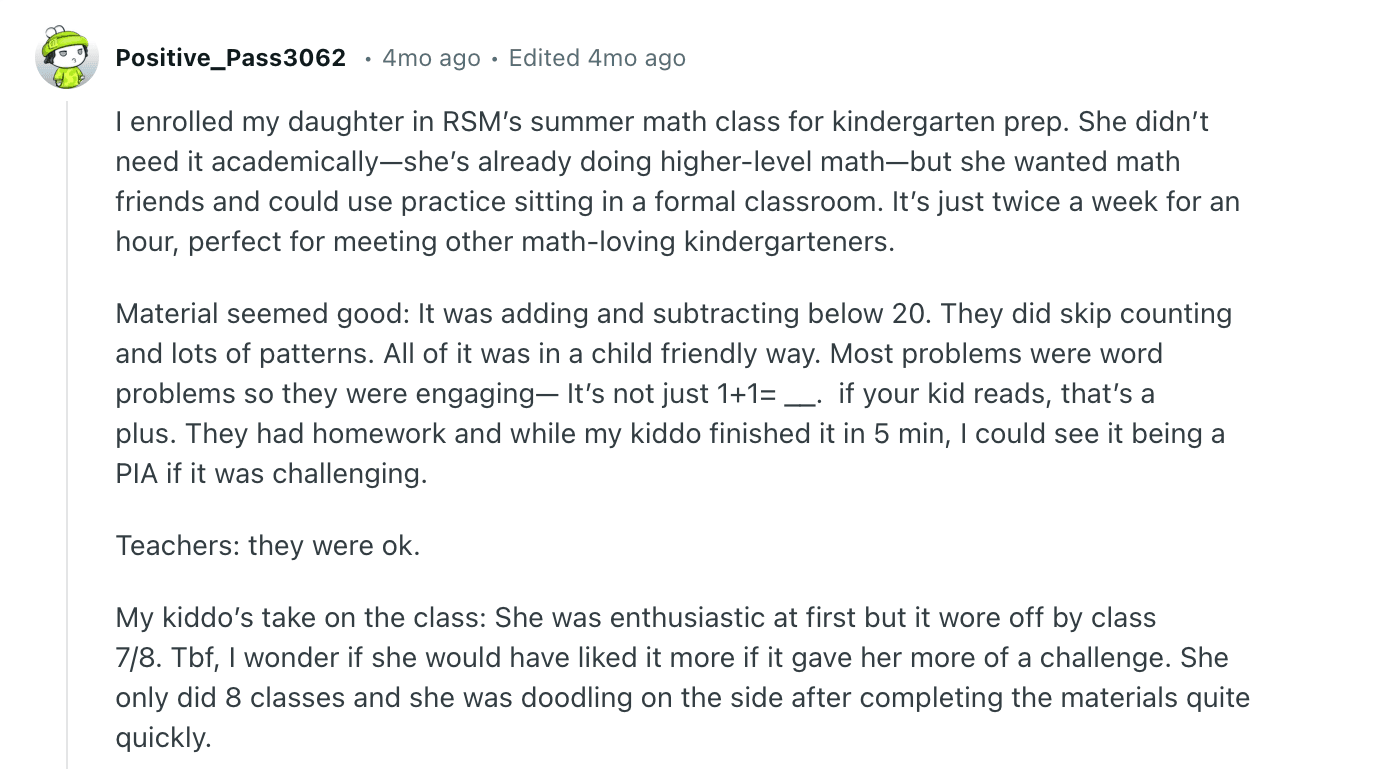
Russian Math tuition is usually high, but discussions on Quora show that it may not address the needs of students, cause math fatigue, and leave overall dissatisfaction with their services.

Still, parents on Yelp report that although the learning process is demanding and studying at the RSM is not easy, it can be a highly beneficial environment for children who are ready to grow and excel in a highly competitive math class.
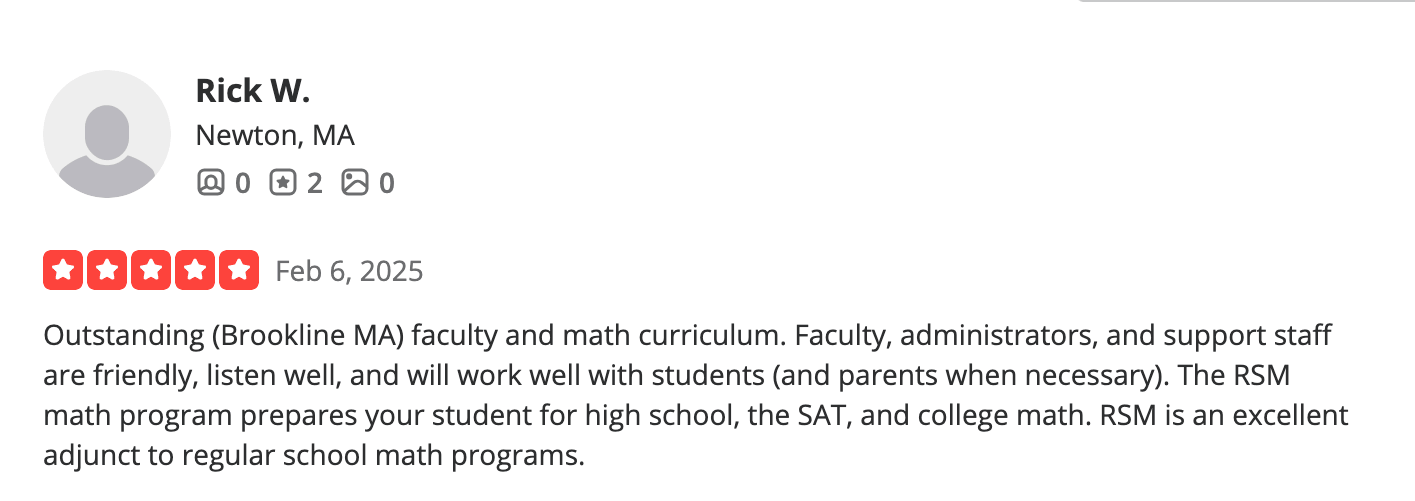
Which is better, Kumon or Russian Math or Brighterly?
So after reviewing all the platforms in terms of their features, pros and cons, promises and reviews, the final question appears: “Which is better, Kumon or Russian Math or Brighterly?” It’s hard to answer this in short, but I’ll try — there is no one-size-fits-all answer here. Choosing the right math program depends on your child’s needs and learning style:
- If you want a structured approach with group classes, registration in Russian Math might be the right fit.
- If you prefer a self-paced and repetitive learning method with minimal tutor’s help, then Kumon is a solid choice.
- If you want flexible and personalized one-on-one online study sessions with expert tutors and free extra resources, then the Brighterly math tutoring platform perfectly fits you.
My recommendation is to start with the free and easy option and see how it goes. For example, book free lesson from Brighterly! The platform seems the least demanding and the most customized among all three, so it can work for you — especially since enrolling in a demo lesson is 100% risk-free.
Other platforms comparison
Finding the perfect online learning platform can be challenging, so it’s essential to make an informed choice. It’s quite natural that you want to go far more than just Brighterly vs Russian Math vs Kumon Reddit comments.
Explore these articles to see which program best fits your child’s needs:

